Review of Browning Version, The
Introduction
There are many films about the relationship of schoolmasters with their pupils. `Dead Poet`s Society `, `School of Rock`, and `Goodbye Mr. Chips` spring immediately to mind.
In this original 1951 adaptation of the Terence Artisan play of the same name, (Albert Finney appeared in one of about six re-makes in 1994) Classics teacher Arthur Crocker-Harris is a much despised, inhibited, and thoroughly difficult teacher. Despite staying rigorously faithful to his commitments and routines (he never finishes a class a second early or late and never awards a pupil one more or one less point than they deserve when fastidiously marking their work) he is an unmitigated failure in every other aspect of his life. He appears to accept this with dignified resignation, much to the frustration of his flighty wife who is having an affair with one of his closest associates. He is constantly passed over for promotion, and is derided by pupils and other teachers alike. He is also suffering from a debilitating illness (heart trouble) that is forcing his premature retirement, and the funds that he and his wife are relying on are denied by the school`s despicable head - played devilishly by Wilfred Hyde White.
Michael Redgrave is utterly bewitching in the role, slowly revealing another more sensitive and knowing side that is never revealed to others. It`s only when it becomes apparent that, despite his considerable failings, that he seems to have `got through` to one pupil - young Taplow (Brian Smith), who seems to have adopted an enthusiasm for the Classics. Indeed, it is when he is given a parting gift by the boy (`The Browning version of Aeschylus` Agamemnon`) that Crocker-Smith breaks down, letting a flood of pent up emotion rage. (It`s a scene played so brilliantly by Redgrave that it`s almost impossible not to follow suit!).
The supporting cast are all superb too. Hyde-White is horribly believable as the autocratic head, Jean Kent is his cruel and unfaithful wife (`He only gave you the book because he wants you to give him his pass-marks`) and Nigel Patrick is superb as the conscience-riddled `other man`.
Terence Rattigan himself adapted his play for the screen and it shows, with many scenes outside the confines of Crocker-Harris`s quarters where the entire stage play was delivered. Anthony Asquith directs in a masterful fashion, and the cinematography (classic early 50`s black and white) is fantastic.
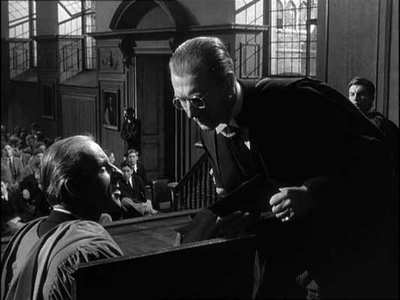
Video
A wonderful transfer from a near perfect print, with beautifully contrasting black and white. A real treat.
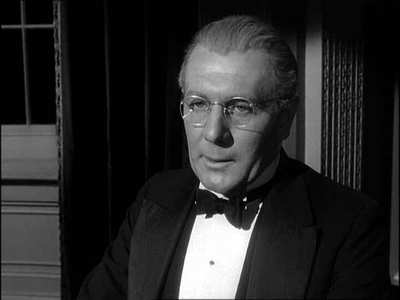
Audio
Dual mono as the original and perfectly adequalte.
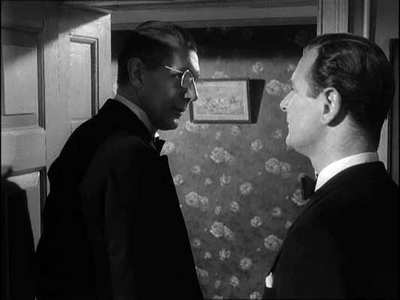
Features
Just a single commentary from film historian Bruce Eder. This is an informative commentary that avoids sounding too academic, and provides plenty of fascinating background to the film, and the play that preceded it. Whilst I often avoid audio commentaries, I generally enjoy a knowledgeable film-buff delivering up useful background. This, in common with those on the Universal horror releases, or Browning`s `Freaks`, is well worth a second sitting of the feature.
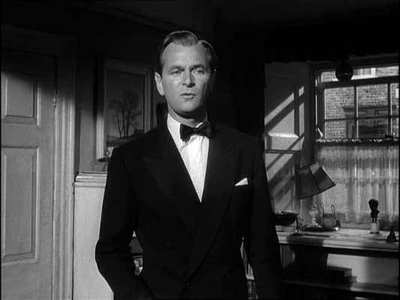
Conclusion
I thought long and hard about giving this disc the first `10` issued in just over 300 reviews for this site. I`ve always held off issuing the ultimate acolade as it seems to suggest that the movie or disc in question is perfect. So perfect that, given the opportunity, you would still change nothing. A perfectly cast, perfectly written, perfectly directed, perfectly shot and perfectly edited piece with a perfect score. A perfect transfer with a perfect set of extra features would also be required. That`s a tall order for a disc - and that`s why I`ve never felt able to offer full marks. Until now.
This film is one of the most beautifully sublime and melancholy pieces ever committed to celluloid, with arguably one of the finest performances to ever grace the silver screen. It may have been a stage play adapted to film (often an uneasy process) but has lost none of the narrative`s power in the journey. Having never seen the play, it strikes me as unlikely that it could match the sheer subtlety of this rendition.
It`s an unusual film in that little happens, and yet, in common with `Remains of the Day` somehow manages to catch the very esscence of regret over a lifetime of hesitation.
It`s a great print and comes with a very entertaining and knowing audio commentary.
You simply must add this to the top of your pending pile. It will provide a perfect antidote to a diet of overblown, over-budgeted Hollywood blockbusters and provide a pleasant reminder that a film can be as powerful as this without a single frame of CGI.
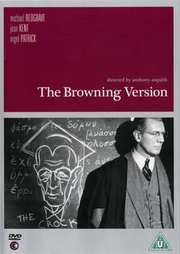
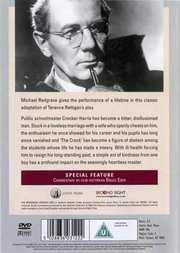




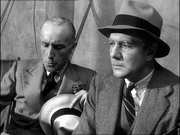
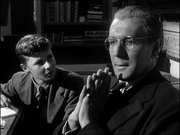
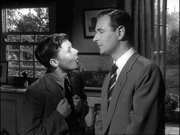
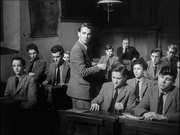
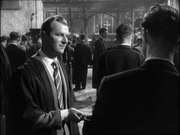
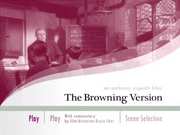
































Your Opinions and Comments
Be the first to post a comment!